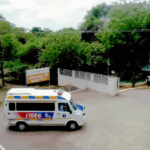Jousting is a medieval martial game where two combatants engage in battle, either on horseback or on foot, wielding lances with skill and precision.
In contemporary professional settings, the term “jousting” refers to the act of making derogatory remarks about a coworker or colleague. When such comments or criticisms arise from medical professionals concerning the work or treatment of another physician, it is precisely termed medical jousting.
It is a tactic to demonstrate superiority and create a more favourable impression in patients’ minds. This approach has become increasingly relevant in today’s competitive world.
Methods of communication include verbal discussions or notes in medical records, messages via mobile phones, and posts on websites such as Twitter, Facebook, or any other printed or electronic media.
Examples of Medical Joisting:
– How can one prescribe this medicine for you?
– Your case has been compromised; nothing can be done now.
– Why CT Scan done? Was it needed?
– Oh! What has happened?
– Who gave you this scar? This could have been avoided.
-If you had come to me first, I would not have treated you this way.
When negative comments about past care are incorporated into a medical record, defending any claims related to that care becomes significantly more challenging. Should that note enter litigation, it becomes crucial evidence, and the author is likely to be called upon as a quasi-expert to evaluate and potentially criticize the prescribing physician.
According to the Medical Council of India, Section 4.2 clearly outlines the standards for conduct during consultations. It emphasizes that insincerity, rivalry, or envy have no place in professional interactions. Engaging in what can be considered jousting is unequivocally prohibited under the Medical Code of Ethics Regulations.
The American College of Physician Ethics Manual 2 clearly states, “Physicians must uphold the integrity of their profession by refraining from disparaging their colleagues’ competence, knowledge, qualifications, or services to patients or third parties. Furthermore, suggesting or implying that a patient was poorly managed or mistreated by another physician is unethical unless there is substantial evidence to support such claims.”
The recent stabbing incident involving a doctor in Chennai is truly tragic and highlights the severe consequences of medical jousting. It appears that misinformation may have played a role in the case, where a diagnosis of stage 5 cancer was mistakenly communicated as stage 2. Thus, the treatment is given accordingly. Additionally, it’s concerning that potential complications from a drug, such as Bleomycin leading to lung fibrosis, were not adequately communicated.
A report by the Indian Medical Association (IMA) reveals that over 75% of doctors have encountered various forms of violence. Notably, approximately 68.33% of these incidents are attributed to the attendees of patients.
Maintaining professional communication within the healthcare environment is essential, especially when addressing concerns about a colleague or when faced with negative remarks directed at you. Engaging in open dialogue directly with the provider is advisable, rather than discussing these issues with patients or including personal opinions in medical records. Maintaining professionalism can foster a positive atmosphere, as respectful communication often leads to constructive outcomes.
Ultimately, the Sanskrit hymn in Upanishad resonates with relevance to this day: “May all individuals attain happiness, may all be free from illness, may all perceive the virtues in others, and may no individual experience suffering.”










